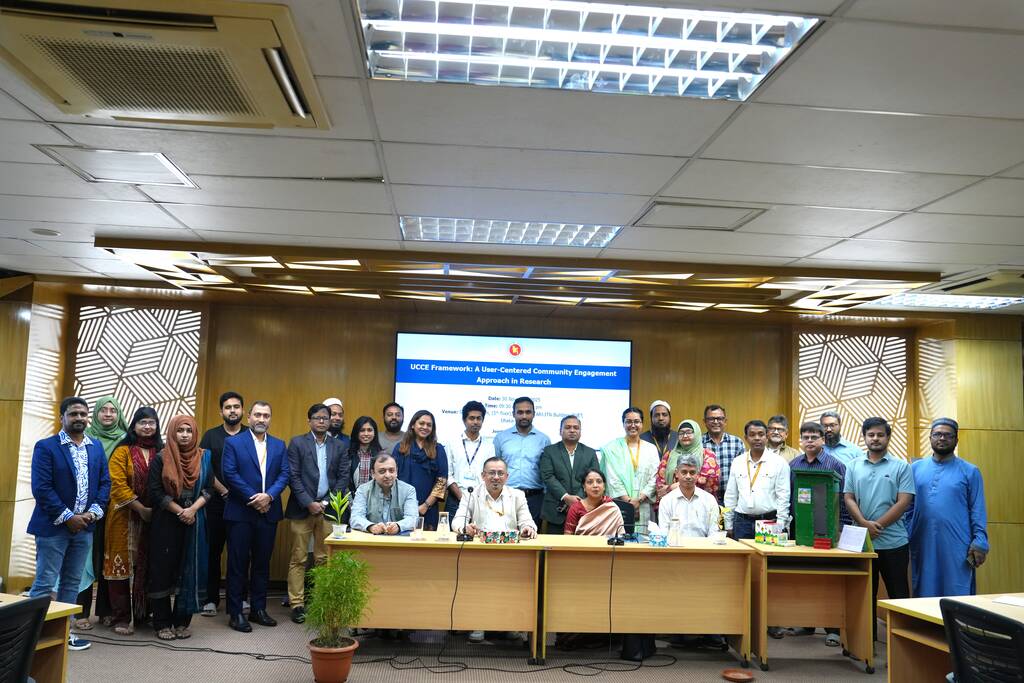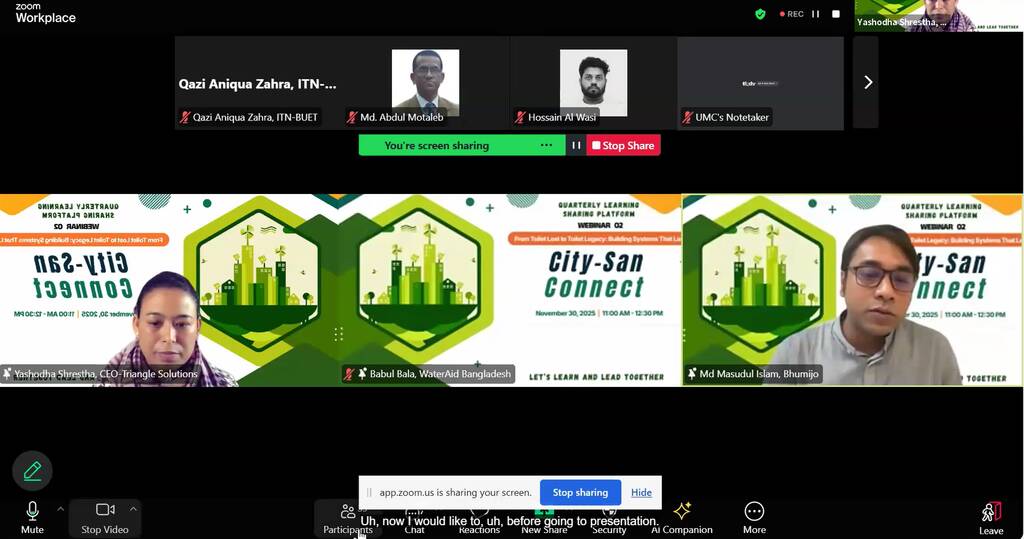Fecal Sludge Management (FSM) is an important component of urban sanitation. In many urban and peri-urban areas, inadequate FSM services pose significant challenges, leading to health hazards and environmental pollution.
Recognizing this issue, ITN-BUET and Environment and Public Health Organisation (ENPHO) jointly organized a three-day training program on FSM Business and Marketing at the National Water Supply and Sanitation Training Center (NWSSTC) from January 28 to 30, 2025. The event brought together 13 participants from nine private operators and one public university for engaging and informative experience. This training aimed at equipping participants with the necessary skills and knowledge to promote FSM as a viable business model. The training was conducted following ENPHO’s contextualization of the module “Training Guide for Private Operators on Faecal Sludge Management Business and Marketing” developed by ITN-BUET, ensuring its relevance to local needs and practices.
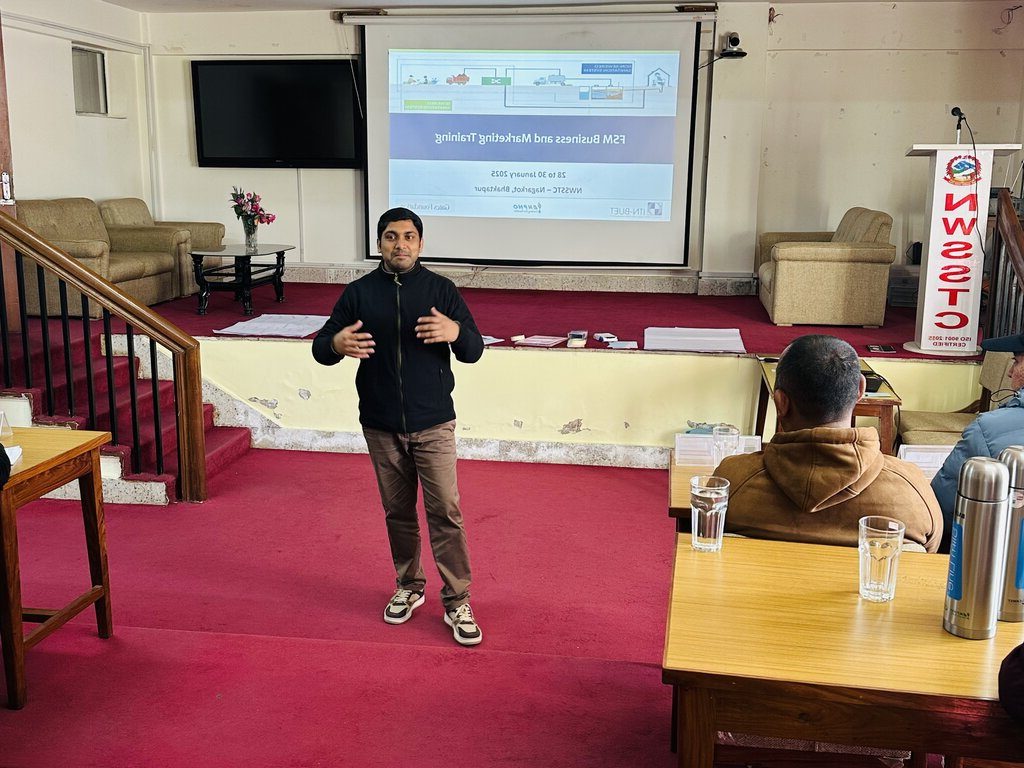
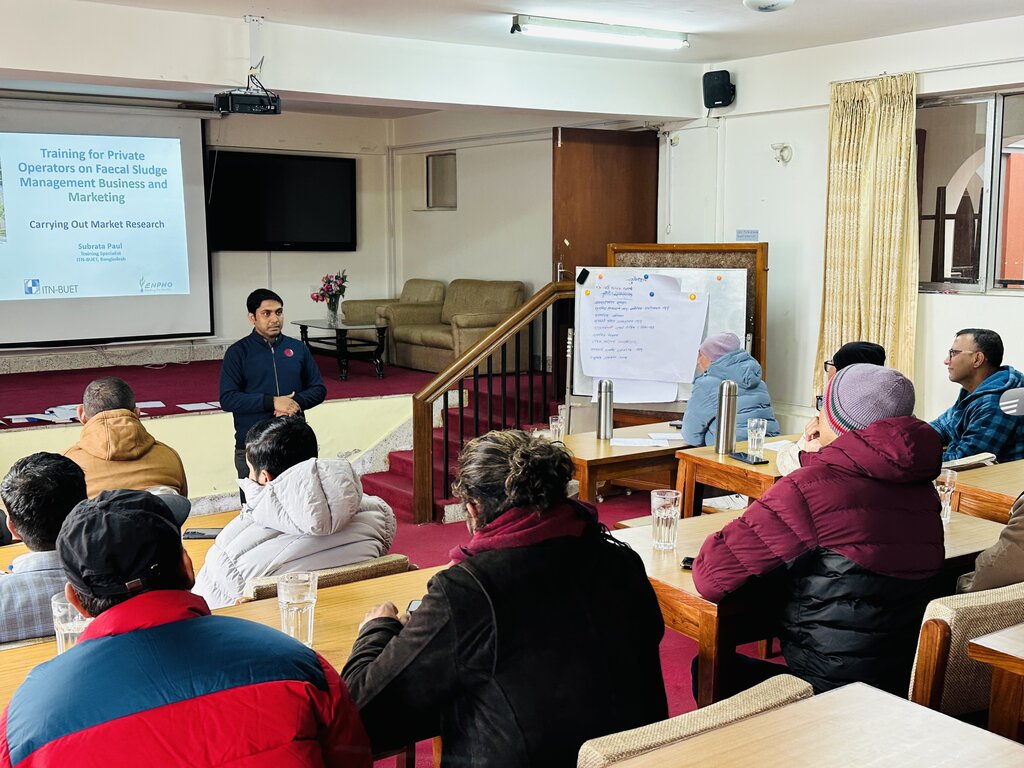

ITN-BUET provided technical support for the program, with Mr. Subrata Paul, Training Specialist at ITN-BUET, conducting key sessions on market research, business plan development, and service marketing. The training combined classroom learning with interactive group activities to ensure a comprehensive understanding of FSM business strategies. In addition, Mr. Subash K. C., Lead Trainer, ENPHO; Ms. Yogita Rajchal, Curriculum Development Officer, ENPHO and Dr. Rajit Ojha, Director, NWSSTC facilitated various sessions and shared their experiences throughout the sessions, enriching the learning experience for the participants.
One of the participants, Mr. Pradeep Dhungana, expressed his appreciation for the training, stating: “This training provided invaluable insights into FSM business and marketing strategies for sustainable sanitation. It has equipped us with the knowledge to expand the sector with meaningful change in the communities.”
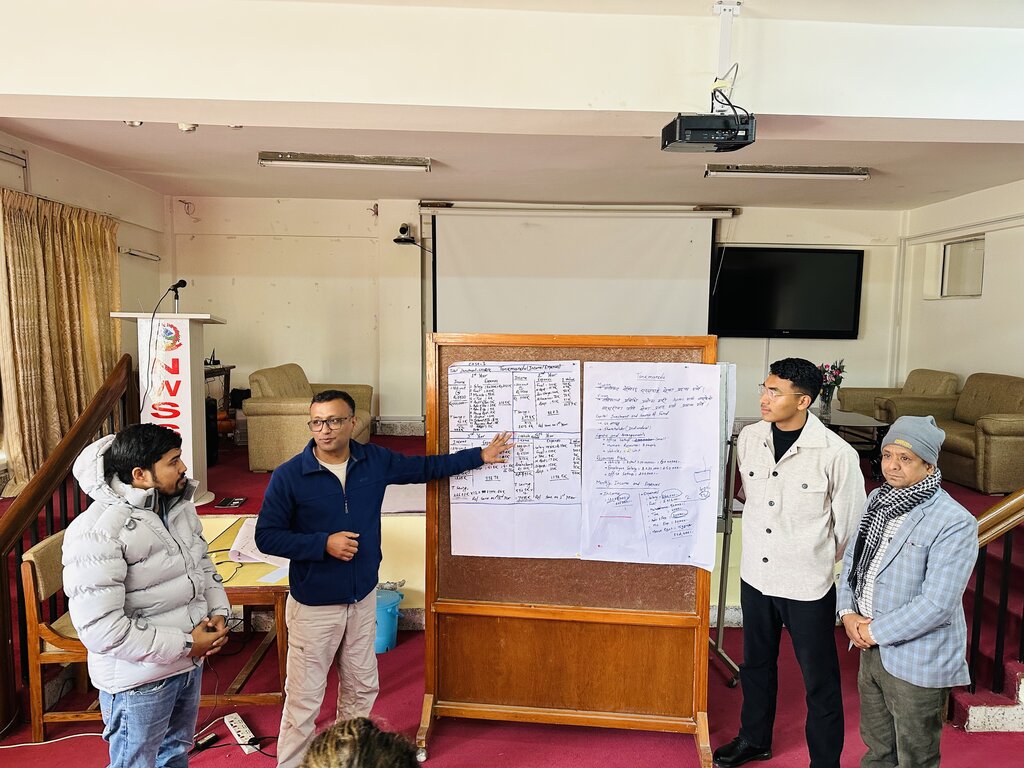
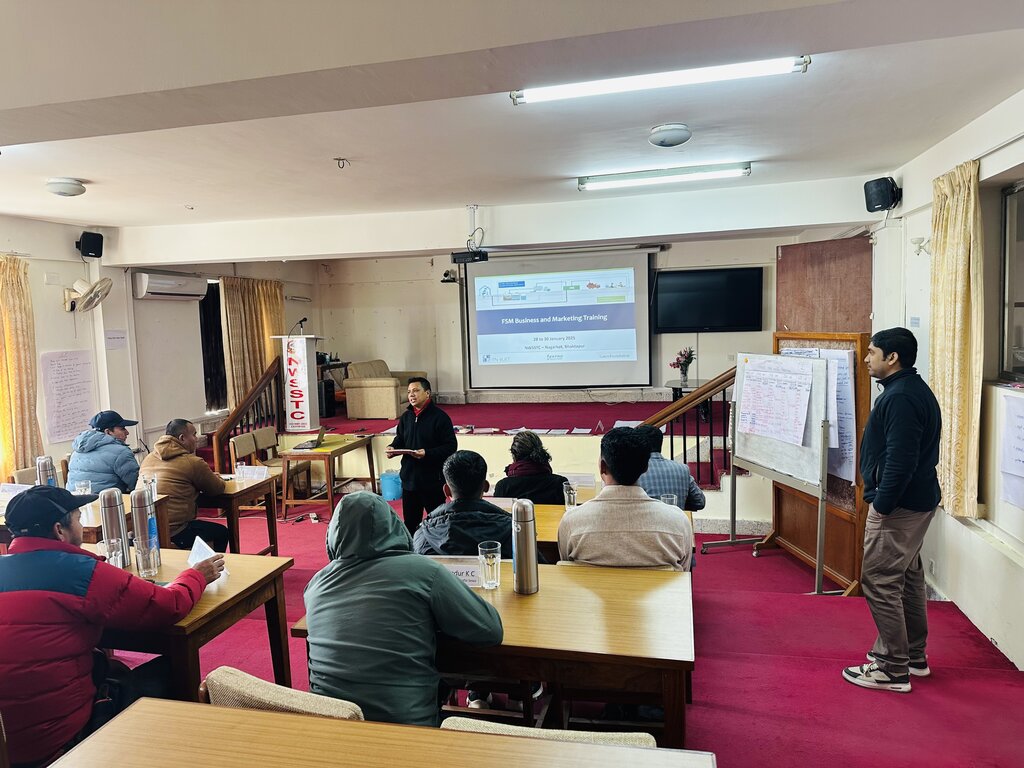
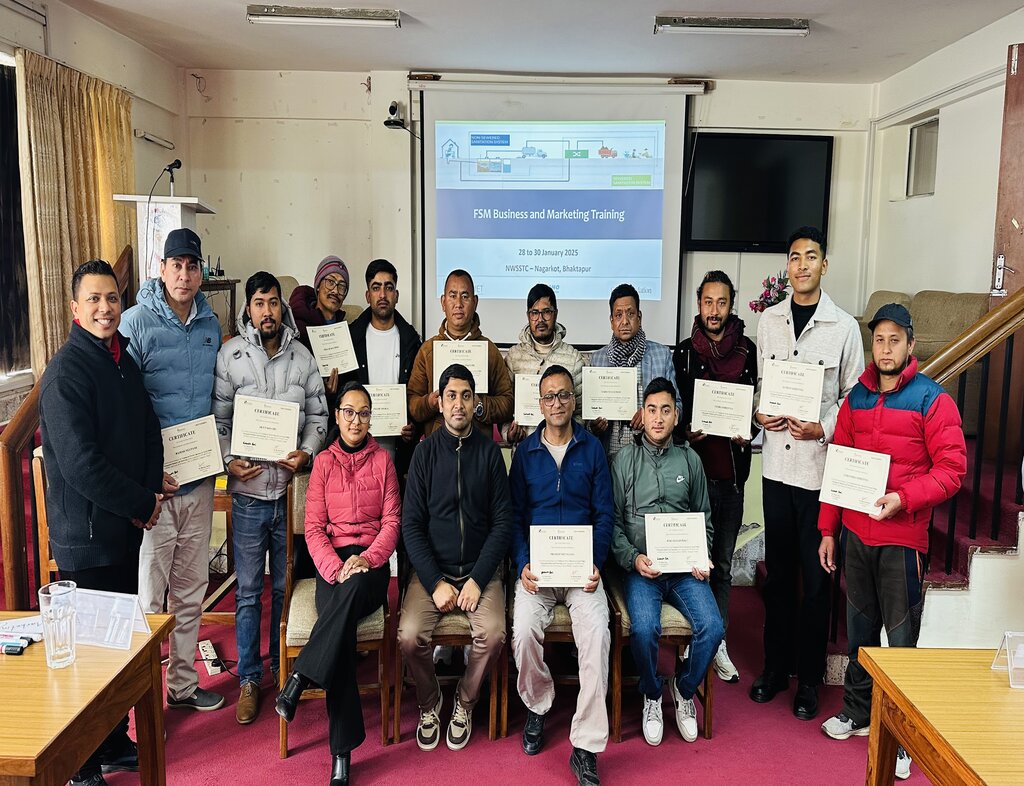
In his closing remarks, Mr. Subrata Paul, Training Specialist at ITN-BUET, emphasized the importance of fostering a sustainable FSM business ecosystem. He stated: “Effective FSM is not just a necessity but an opportunity to run sustainable sanitation solutions through innovative business models.”
The program concluded with a participatory certificate awarding ceremony. This initiative marks a significant step toward strengthening FSM services and promoting sustainable sanitation entrepreneurship in Nepal. Participants left with valuable insights and practical tools to contribute to improved sanitation services, public health, and environmental sustainability.



